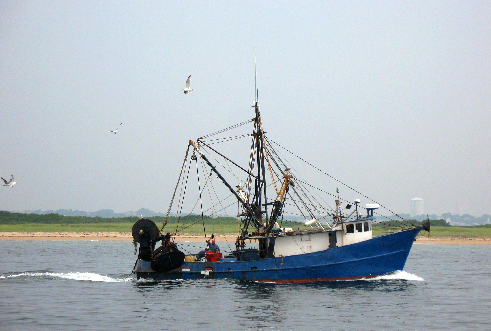SGERTSD › About us › Independent Panel to Develop a "Model" RFMO
Independent Panel to Develop a "Model" RFMO
Independent Panel to Develop a "Model" RFMO
Since August 2006, the Round Table for Sustainable Development has been working in cooperation with the Royal Institute for International Affairs (Chatham House) in London to develop a “model” for improved governance by Regional Fisheries Management Organizations (RFMOs). The project stems from one of the core recommendations of the High Seas Task Force , which presented its final report in March 2006.
RFMOs are intergovernmental fisheries organizations or arrangements that have the authority to establish fisheries conservation and management measures on the high seas. RFMOs play a critical role in the global system of fisheries governance. They are the primary way to achieve cooperation between and among fishing nations that is essential for the conservation and effective management of international fisheries.
While the majority of marine fish stocks are under management by one or more RFMOs, there is growing concern over the state of world fisheries.
|
There is also increasing international attention to the problem of illegal, unreported, and unregulated (IUU) fishing and its role in fish stock depletion. While a number of legal instruments aimed at addressing the problems of international fisheries governance have been introduced over the past twenty years, it is often suggested that RFMOs have generally failed to prevent depletion of high seas fish stocks and degradation of their marine ecosystems.
|
|
The “model” for improved governance by RFMOs, published by Chatham House in August 2007, is entitled Recommended Best Practices for Regional Fisheries Management Organizations.
The report outlines current ‘best practices’ that RFMOs can use to improve their performance in meeting the core challenges of global fisheries management. Although ‘best practices’ continue to evolve rapidly, the model is based on a comprehensive assessment of best practices of RFMOs worldwide and provisions of international instruments, particularly the UN Fish Stocks Agreement of 1995.
This initiative is intended to complement ongoing work to improve RFMOs, including existing efforts to provide direction for performance reviews. For example, the core set of criteria for tuna RFMOs outline ‘what’ (at a minimum) should be assessed in performance reviews, while the model RFMO outlines ‘how’ those organizations could make improvements based on best practices.
Further information about the work of the Independent Panel, as well as the documents and reports produced by the Panel, can be found by following these links :
http://www.chathamhouse.org.uk/index.php?id=391
http://www.illegal-fishing.info/
For further information, contact:
Michael Lodge
Round Table on Sustainable Development
OECD, Paris
Michael.Lodge@oecd.org
Related Documents


